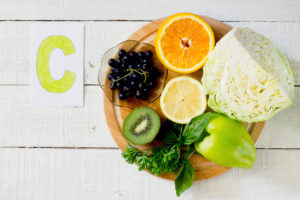The human life begins at conception. When an egg is fertilized, it goes through a wonderful set of developments which, after 9 months, ends in the birth of a human child.
In conception, the female egg is fertilised by the male sperm. The tiny entity immediately starts the process of division, specialisation, migration and growth. What is initially one cell will, at the end of its development, become a human being comprising of about 26 billion cells.
While in the womb, the multiplying cells specialise and take on different jobs. Some become muscles, some nerves, some bones, and so on. They also move to different areas of the embryo, gradually taking on the familiar look of a baby.
The body of a baby is made up of nutritional building blocks, such as protein, calcium, magnesium, iron and folate. All of these “baby ingredients” must come from the mother, which means that the health and the nutrition of the mother is of the utmost importance.
Pregnancy: What Could Go Wrong

As counter-intuitive as it may sound, a mother’s womb is not always a safe place for a developing child.
There are many risk factors threatening the healthy growth of a baby. Some, but not all, of these risks are due to the mother’s, and even the fathers, lifestyle choices, and may go back years before the child is conceived.
The quality of the sperm is determined by genetics but also by the health and the age of the father.
The mother’s age makes a difference, too. The older the mother at the time of pregnancy the more likely the child will be born with birth defects. For example, the risk of having a baby with Down Syndrome rises from one in 1441 at the age of 20 to 1 in 84 at the age of 40.1
Medicinal drugs and environmental toxins play a role in the future health of the baby. The sedative drug Thalidomide, developed in the 1950s by the German drug company Chemie Grünenthal, caused a worldwide epidemic of birth defects in the 50s and 60s.
Thalidomide was subscribed for various ailments ranging from gastritis to insomnia and, tragically, morning sickness.
Unbeknownst to the mothers, the drug caused phocomelia, or malformation of the limbs, in infants. Victims of this drug company “error” numbered in the thousands just in Germany. According to conservative estimates, more than ten thousand babies were born with deformities worldwide. Out of these, only 40-50% survived.
In the present age, many mothers are at risk from the herbicide Roundup used all over the world in agriculture. Glyphosate, the active ingredient in Roundup, has been shown to cause birth defects in mice, frogs and chickens.2
The presence of Roundup in almost all food found at supermarkets is one reason expectant mothers should eat organic, whenever possible.
Defending Your Unborn Child With Right Nutrition

Often, we have limited means to protect ourselves and our babies from environmental, nutritional or medicinal threads. We can not control the amount of toxins in the outside air, and not all of us can afford organic food. But we can educate ourselves and aim to live in as healthy a manner as possible.
The health of both adults and children is built on nutrition. We cannot enjoy ideal health —and the foetus cannot develop optimally— if our food lacks the nutrients that our bodies require.
At the basic level, it is important that you as an expectant mother eat enough fruits and vegetables. Eating veggies and fruits will give you more vitamin C, beta carotene and folate, a natural form of folic acid.
In a study conducted at the University of Pennsylvania in Philadelphia, it was found that mothers who consumed 2-3 servings of fruits, vegetables and fruit juices per day were less likely to give birth to children with brain cancers.3
Alcohol, Cigarette Smoke and Nitrites
As crucial as eating the right foods is, avoiding wrong kinds of foods and toxic substances, such as alcohol, is also important.
Consumption of alcohol during pregnancy may lead to hyperactivity, short attention span and emotional problems in the child. The risk is multiplied if the mother drinks alcohol in the first trimester of pregnancy. According to the US Surgeon General, there is “no safe minimum level of alcohol consumption during pregnancy.”
Cigarette smoke, on the other hand, has thousands of toxic substances, among them benzene and formaldehyde which both cause birth defects.
While less serious than being exposed to cigarette smoke, eating foods that contain preservatives and nitrites, such as cold meats, frankfurters and other sausages, is also bad for the child. According to a research done in three cancer centres and hospitals in the USA, eating these kinds of foods once a week leads to a 50% higher risk for brain tumours in children.3
As a final example of what not to eat when pregnant, unripe potatoes contain a chemical compound called solanine. It is a glycoalkaloid poison which may cause miscarriages. Expecting mothers should make sure that they never eat potatoes with green patches in them.
Supplementing for the Child
Vitamins and Minerals

The developing baby needs adequate amounts of all vitamins and minerals. The ones to pay special attention to are the b-group vitamins (including B1, B2, B3, B6, folic acid and B12), vitamin A, vitamin D, vitamin C, vitamin E and the minerals iron, zinc, magnesium, calcium and phosphorus.
Excessive amounts of vitamins A and D may cause birth defects in a baby. You should be careful not to exceed recommended dosages.
Vitamin E can be found in wheat germ, egg yolk and leafy vegetables. It protects the RNA and DNA and helps prevent miscarriages.
Folic Acid (Folate)

The use of folic acid (folate) should be started three months before conception and continued at least three months into the pregnancy. Normal dosage for pregnant women is 400 micrograms. For women who have given birth to a baby with spina bifida, the dosage should be 4000 micrograms.3
Folic acid is needed to help the foetus develop DNA, and the deficiency in this vital vitamin may result in central nervous system problems or even death. The deficiency may also cause anaemia, premature separation of the placenta, miscarriages, bleeding, anencephaly, low weight and spina bifida.
The natural form of folic acid, folate, occurs in vegetables, especially dark-green leafy vegetables, as well as in fruits, nuts, beans, poultry, meat, eggs and seafood.
The expecting mother should take about 1200 milligrams of calcium and 30 milligrams of iron daily.
All of these requirements can be met with a high-quality multivitamin and a mineral supplement, as well as by enjoying healthy foods.
Vitamin C

Vitamin C, on the other hand, is needed in larger quantities. The dosage may vary from individual to individual based on the mother’s state of health.
Andrew Saul PhD describes the practice of the vitamin C pioneer Dr. Frederick R. Klenner. He gave pregnant women at his clinic 4000 mg of vitamin C during the first trimester, 6000 mg during the second trimester and 10-15 000 mg during the third trimester. Dr Klenner continued the treatment after the birth of the baby by prescribing the child a daily dose of 50 milligrams of vitamin C from day one in order to compensate for the vitamin that he or she received —and benefited from— in the womb.4
This vitamin C megadose routine was proved safe during a 40-year practice and a history of more than 300 pregnant women with very few complications. Women at Dr. Klenner’s clinic were saved from miscarriages, postpartum haemorrhages, cardiac distresses and toxic manifestations. Their labour was also shorter and less painful.
And they had fewer stretchmarks.
According to Dr. William J. McCormic (1880-1968), stretch marks “are the result of increased fragility of the involved abdominal connective tissue, secondary to deficiency of vitamin C.”4
In other words, stretch marks can be completely avoided by taking enough vitamin C.
Supplements to Take During Pregnancy
- Folic acid 400 micrograms (4000 micrograms if you have had a baby with spina bifida)
- Vitamin A 2275mcg (not more than 3000mcg)
- Vitamin C 4000-15000mg
- Vitamin D 120mcg
- Vitamin E 255mg
- Calcium 1000-1500mg
- Iron phosphate 15 milligrams 3 times a day
- Multivitamin with minerals 1 tablet3,4,5
1. Wikipedia: Advanced Maternal Age.
2. Paganelli A, Gnazzo V, Acosta H, Lopez SL, Carrasco AE. Glyphosate-based herbicides produce teratogenic effects on vertebrates by impairing retinoic acid signaling. Chem Res Toxicol. 2010.
3. Prevention’s Healing with Vitamins. Alice Feinstein (ed.). 1996.
4. Andrew Saul: Doctor Yourself. 2013.
5. Patrick Halford and Susannah Lawson: Optimum Nutrition Before, During and After Pregnancy: The Definitive Guide to a Healthy Pregnancy. 2009.








